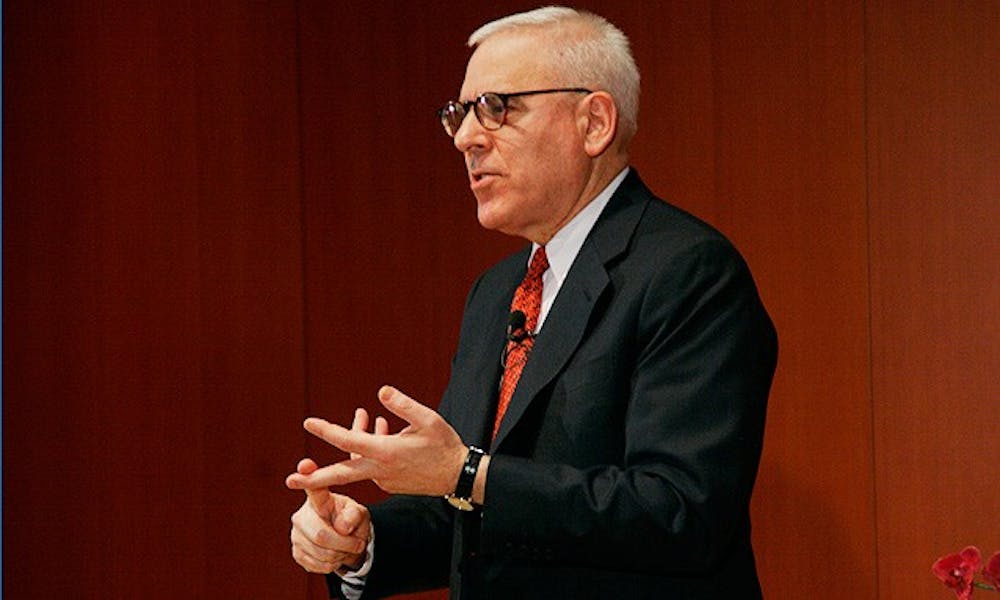Duke Trustee David Rubenstein told students Wednesday that Duke must support entrepreneurs to remain a top institution in the coming decades in addition to the University’s focus on becoming increasingly global.
Rubenstein, Trinity ’70 as well as co-founder and managing director of the Carlyle Group, said leading universities must create a symbiotic relationship with students, providing both advice and support for student business and ideas. Entrepreneurial students will give back to their universities both through philanthropy and by creating businesses in their school’s surrounding area, he noted at the Entrepreneurship at Duke Education Series held at the Nasher Museum of Art.
“The best universities are going to be ones which inspire people to try to do something different, to try to create something with their life, to try to create a new social entrepreneurial type of venture or business entrepreneurial venture,” Rubenstein said, citing the Massachusetts Institute of Technology and Stanford University as role models for Duke as it formalizes its entrepreneurship efforts.
Rubenstein chronicled his own path from an academically-minded undergraduate at Duke to the co-founder of one of the world’s largest private equity firms. He noted that he attended the University when it still had a quota for Jewish students—a policy later eliminated by former Duke President Terry Sanford. At first he felt out of place at the University, which remained more of a southern than national school and had maids clean the rooms and make the beds of students each day.
In a question-and-answer session after his speech, Kimberly Jenkins, senior advisor to the president and provost for innovation and entrepreneurship, asked Rubenstein whether being different influenced him as an entrepreneur. Jenkins, Trinity ’76 and Graduate School ’77 and ’80, previously served on the Board of Trustees with Rubenstein, where she noted he has been “an important voice” in supporting entrepreneurship efforts.
In his response, Rubenstein noted that people who fit into society perfectly and are busy doing things like going to parties or otherwise have their mind occupied lack time to reflect and think—a crucial aspect of entrepreneurship.
“In my own case, I did have some time to [reflect], but other people at Duke who knew me might say I was a social nobody,” he said. “Maybe it helped and maybe it didn’t.”
When discussing what makes a good entrepreneur, Rubenstein said one must start with an idea that somehow defies conventional wisdom and then pursue it with a “tunnel visioned” approach that combines hard work, communication skills and a willingness to work with others.
Those who want to be entrepreneurs must also sometimes ignore others, including their own parents, he said. When Rubenstein was younger, his parents hoped he would become a dentist.
“You have to ignore your parents, because your parents are never going to want you to go be an entrepreneur. They’re never going to want you to because that’s not the traditional thing to do.”
Rubenstein urged students in the room to “create something that didn’t exist before” and somehow improve society.
Get The Chronicle straight to your inbox
Sign up for our weekly newsletter. Cancel at any time.

